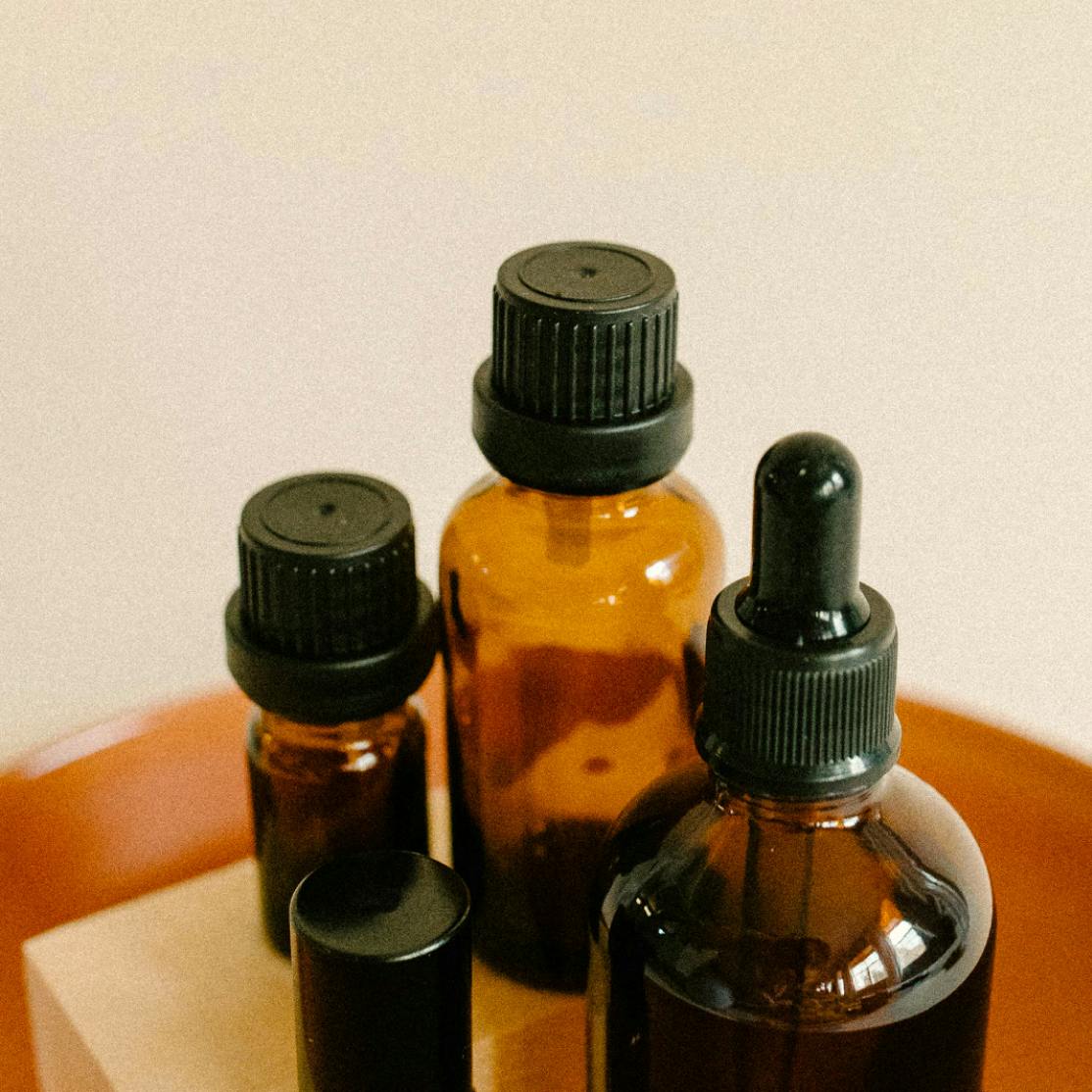Musculoskeletal pain is one of many issues that can arise during the years when estrogen is declining, and one of those problems is frozen shoulder—which can cause intense pain and make everyday activities difficult. There are treatments that can help, however—from injections to physical therapy. While HRT is not indicated for frozen shoulder, there has been some evidence that it may, in fact, be protective—but more research is needed.
Certain menopause symptoms are well known by now: Hot flashes and night sweats, poor sleep, and mood changes? Tell us something new.
But what about all the other mysterious changes you may notice in your body at midlife? That category should include “frozen shoulder.” Slowly worsening shoulder pain and stiffness —so bad that you can’t lift your arm high enough to pull on a shirt or blow-dry your hair, let alone do a downward dog— is something women can experience at this time. The good news is that common, effective treatments for menopausal symptoms can also get your shoulder joint moving pain-free again.
Here’s what to know about frozen shoulder, how it relates to menopause, how to treat it—and more.
What Is Frozen Shoulder, Exactly?
The clinical term for frozen shoulder is adhesive capsulitis. To understand this condition, we’ll have to jump into a little bit of shoulder anatomy:

Your shoulder is a ball-and-socket joint.
- One major shoulder structure is the rotator cuff, which is made up of muscles and tendons. This group of tissues attach to the shoulder joint, helping it stay in place while allowing for movement.
- Surrounding the joint and rotator cuff is the shoulder capsule, which is made up of connective tissue.
- Then, you have synovial fluid, which is the lubricant needed for comfortable shoulder rotation and movement.
When frozen shoulder strikes, the shoulder capsule becomes inflamed, thick and stiff, bands of tissue called adhesions develop, and synovial fluid may decrease, according to the American Academy of Orthopaedic Surgeons (AAOS). That process triggers symptoms, the most common being pain, stiffness, and restricted range-of-motion. Frozen shoulder most often affects women, and it most commonly occurs between ages 40 and 60, according to the AAOS. On average, adhesive capsulitis happens at age 55.
Frozen shoulder is believed to be a temporary condition. Inflammation subsides over time and your shoulder should start to loosen up, allowing you to get back your normal range-of-motion. But that can take as long as a few years, and some people experience lasting discomfort. So don’t sit back and wait for improvement—treatment is recommended and effective.
Menopause and Hormonal Changes
Although menopause is defined as the moment when a woman has gone 12 consecutive months without a period, hormonal changes start many years before that. This time period is called perimenopause, and while it lasts for four years, on average, some women are in perimenopause for up to a decade.
During this time, the ovaries are beginning to shut down, closing out the reproductive period. Hormone levels—notably estrogen and progesterone—begin to make their descent, but it’s not a gradual decline. Instead, your hormones go on a rollercoaster, and these spikes and dips trigger menopausal symptoms.
Where will you feel the effects? Pretty much everywhere. Estrogen is a hormone that affects every part of your body—and you have estrogen receptors present in your skin, muscles, bones, ligaments, and tendons.

What Success Looks and Feels Like
You can visually see estrogen-related changes when you look in the mirror and notice more fine lines and wrinkles forming or the appearance of slack skin. Collagen and elastin—two connective tissues—degrade at a faster pace when deprived of estrogen. (That’s why estriol face cream has become so popular!) But if you dig deeper, you’ll see that estrogen also increases the collagen in the tendons and ligaments (more connective tissues!), which keeps them thick and pliable and reduces stiffness.
The Link Between Menopause and Frozen Shoulder
Experts aren’t exactly sure what causes frozen shoulder, but hormonal changes during menopause may be one factor. There’s also preliminary evidence that hormone replacement therapy (HRT) can help women avoid frozen shoulder (more on this later), which makes sense when you understand the possible role menopausal estrogen loss may play in the condition.
Risk Factors for Developing Frozen Shoulder During Menopause
While frozen shoulder tends to occur during the menopausal transition, certain underlying health conditions, as well as injuries, can put you at higher risk for frozen shoulder, including:
- Cervical spondylosis (osteoarthritis affecting the spinal discs in your neck)
- Previous or current shoulder injury (e.g. rotator cuff tear)
- High triglycerides
- Previous shoulder surgery
- Thyroid disease
- Type 2 diabetes
Symptoms and Diagnosis
Here’s where we get into how frozen shoulder may affect you. The stuff you were doing without a second thought—like raising your arms up to wash your hair, throwing on a jacket, hoisting your carry-on into the overhead compartment, or waving your arms to cheer for your kids at their game—may be painful, or even impossible now.
If you have frozen shoulder, these symptoms may be on your radar:
- Loss of range-of-motion in shoulder
- Shoulder pain, typically described as dull, aching, worse with movement, and located around the outer shoulder.
- Stiffness
Without treatment, frozen shoulder progresses through three main phases. Having a little bit more information on these these can help you understand the course of symptoms a bit better:

- Phase 1: Inflammation in the shoulder capsule. This is when pain is most severe and stiffness and loss of range of motion begins to increase. Lasts 2 to 9 months.
- Phase 2: Adhesions form, further reducing range-of-motion. Pain decreases, but shoulder movement is restricted. Lasts 4 to 12 months.
- Phase 3: Remission, or where symptoms gradually subside. Lasts 12 to 24 months.
These symptoms come on gradually, as opposed to, say, a shoulder injury, where pain occurs suddenly. A healthcare provider can diagnose you by taking a thorough history (aka, listening well to your experience) and with a physical exam. If needed, your healthcare provider may also order x-rays or other imaging tests to confirm or rule out other shoulder conditions.
Treatment Options for Frozen Shoulder in Menopausal Women

Even though frozen shoulder eventually thaws, you don’t need to live with shoulder pain and stiffness in the meantime—there’s pickleball to play, hair washing to do, and those items high up in your cupboards aren’t going to reach themselves. Lisa M., of Cherry Hill, NJ was in her early 50s when her shoulder started hurting. “It was excruciating—not to mention inconvenient in terms of being able to do pretty much anything, even to fasten my own bra strap. Cortisone shots and a lot of physical therapy eventually helped, but I had to be really diligent and patient.”
Let’s review the ways to restore range-of-motion, reduce stiffness, and treat pain and discomfort:
- Consider OTC medications like ibuprofen to relieve swelling and discomfort.
- Oral steroids may also be prescribed for inflammation and pain.
- Make an appointment with a physical therapist who can show you shoulder exercises and stretches that improve range-of-motion and function.
- Ask if you’d benefit from injections into the shoulder joint, including steroid injections, or hydrodilation (an injection of fluid that lubricates the joint).
- Treat underlying conditions: If you have type 2 diabetes or thyroid disease, make sure you’re in close contact with your clinician to manage these.
If none of the non-surgical methods work for you, then shoulder surgery may be an option. There are a couple of methods surgeons recommend, including shoulder manipulation (which stretches the scar tissue under anesthesia) or minimally invasive techniques like arthroscopy (which releases, aka unsticks, the joint).
As of right now, hormone replacement therapy is not a treatment for frozen shoulder. However, if you are experiencing other symptoms of menopause—insomnia, irritability, hot flashes, vaginal dryness, joint pain, to name just a few—your shoulder symptoms may also be attributed to hormonal changes of menopause. Talk to a clinician who specializes in menopausal care and can create a Care Plan for you that may address both common symptoms of menopause and other conditions associated with this time in your life.
Preventative Measures and Lifestyle Modifications
While HRT is not a validated treatment for frozen shoulder, there’s some evidence it may prevent the condition in menopausal women in the first place. In preliminary research in the Orthopaedic Journal of Sports Medicine in 2023 researchers looked at the electronic medical records of 1,952 menopausal women between ages 45 and 60. Four percent of patients who were treated with HRT experienced adhesive capsulitis compared to 7.7 percent not on HRT. That meant those not on HRT had nearly twice the odds of developing frozen shoulder versus those on hormonal treatment. Although that sounds like a very large spread–the conclusions weren’t considered statistically significant because of the small sample size. While researchers suspect that HRT may be protective, this is the first study to look at the potential connection, and therefore more research is needed.
So, what else can you do to lower your risk of developing this seriously painful, life-derailing condition? It’s important to exercise to maintain shoulder strength and stretch to promote and maintain range-of-motion. That can help keep shoulders healthy and moving as they should, and protect against injury. If you’ve had shoulder surgery, follow through with recommended physical therapy and other recovery measures.
When to Seek Medical Attention
If you have pain and stiffness in your shoulder that’s making it difficult to move your arm, see a clinician. Frozen shoulder gets worse if left unchecked, and since it can take years to fully “thaw out,” you’ll want to address the problem as soon as possible. If you have weakness or numbness in your arm, see a health care provider to rule out more serious conditions, such as nerve injury. If you’re experiencing this kind of shoulder pain, don’t wait this out—tackle it like you would other menopausal symptoms and get the care you need and deserve.
Frequently Asked Questions (FAQs)
How do you treat a frozen shoulder in menopause?
Frozen shoulder is treated the same no matter your age or life stage, with non-steroidal anti-inflammatory medication, potential steroid injections, hydrodilatation, and physical therapy. If those measures don’t improve movement and pain, surgery may be considered.
Can hormonal imbalance cause frozen shoulder?
Hormonal changes may be one risk factor in the development of frozen shoulder, and frozen shoulder is more common in midlife women compared to other groups of people.
How to fix frozen shoulder fast?
Frozen shoulder is a slow freeze—and a slow thaw. Meaning, symptoms typically build over the course of months and then take more than a year to subside. There isn’t a fast fix. Medications like NSAIDs or steroid injections can relieve pain and swelling, but this temporarily addresses symptoms. Physical therapy doesn’t fix shoulder inflammation quickly, but it is needed to improve movement. If nothing works after three to six months, you may need surgery.
What is the most common cause of frozen shoulder?
Experts aren’t exactly sure what causes frozen shoulder, but they do know that certain risk factors, such as being a woman, being in midlife, or having underlying conditions like type 2 diabetes or thyroid disease can make you more prone to frozen shoulder.
The Takeaway
- Frozen shoulder can be incredibly painful and many women don’t know that it can actually be symptom of menopause
- Musculoskeletal pain is one of many issues that can arise during the years when estrogen is declining, along with a few other risk factors that can increase the chances that you may experience musculoskeletal pain.
- There are remedies for frozen shoulder—including over-the-counter medications to help with pain and inflammation, targeted physical therapy, surgery and injections, and preventative exercises to strengthen the joint. While HRT is not indicated for frozen shoulder at this time, there has been some evidence that it may, in fact, be protective—but more research is needed.
If you’re in perimenopause or menopause and want guidance from clinicians who specialize in women’s midlife health, book a virtual visit with Midi today.
Hormonal change is at the root of dozens of symptoms women experience in the years before and after their period stops.
Our trained menopause specialists can help you connect the dots to guide you towards safe, effective solutions.
Whether you need personalized guidance or a prescription routine to tackle symptoms—including brain fog, hot flashes, sleep trouble, mood swings, and weight gain—we’ve got you covered. Learn more here.
Midi’s mission is to revolutionize healthcare for women at midlife, wherever they live and whatever their health story. We believe that starts with education, to help all of us understand our always-changing bodies and health needs. Our core values guide everything we do, including standards that ensure the quality and trustworthiness of our content and editorial processes. We’re committed to providing information that is up-to-date, accurate, and relies on evidence-based research and peer-reviewed journals. For more details on our editorial process, see here.
 Jessica Migala
Jessica Migala





